Recently, we had the pleasure of welcoming our alumni and current participants in the programme “Innovation in Governance for Urban Nature-based Solutions” to a packed week in Lund and Malmö.
As urban practitioners, coming from Armenia, Azerbaijan, Georgia, Moldova and Ukraine, they are directly involved in change-making processes and city planning. During the programme they have had the opportunity to further develop their skills and capacities when it comes to facilitating long-term transformations toward sustainability.
Sweden Week took off with a large impact conference. There, the invited alumni could present the results from their change projects, which they developed during their one year training programme at Lund University. Each presentation was followed by a discussion with participants in the current batch on how to address challenges and take the projects on further. To explore the current state and the future opportunities of the programme, relevant guests were also invited. Among these, representatives from the Swedish Institute (the financier of the programme) and colleagues from Lund University.
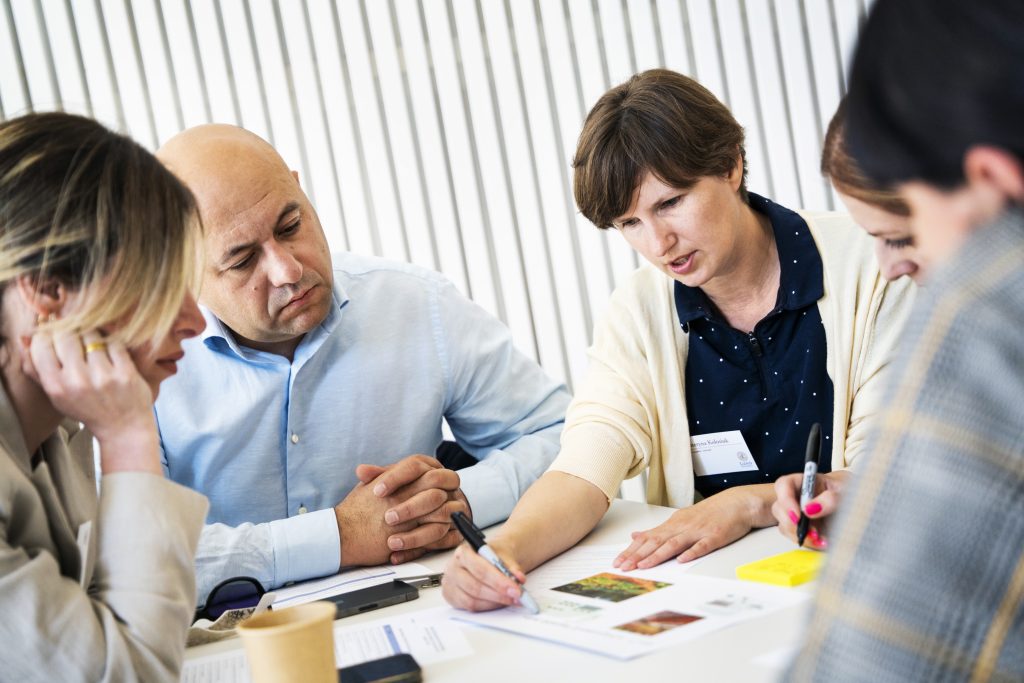
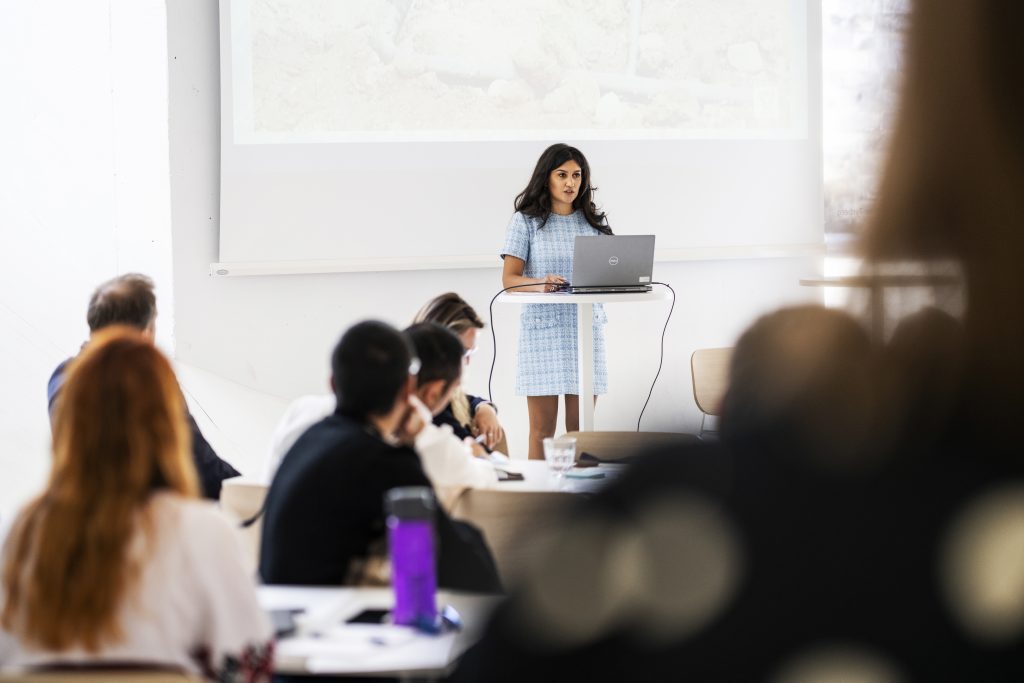
The next day started off with a joint workshop in Lund – “Taste agile”. Afterwards the alumni and the current participants in the programme were split up. One group headed to Malmö for a study visit to Augustenborg Eco-City and the Scandinavian Green Roof Institute. The alumni stayed in Lund for an intense knowledge exchange workshop where they reflected on future needs to continue learning and future collaborations.
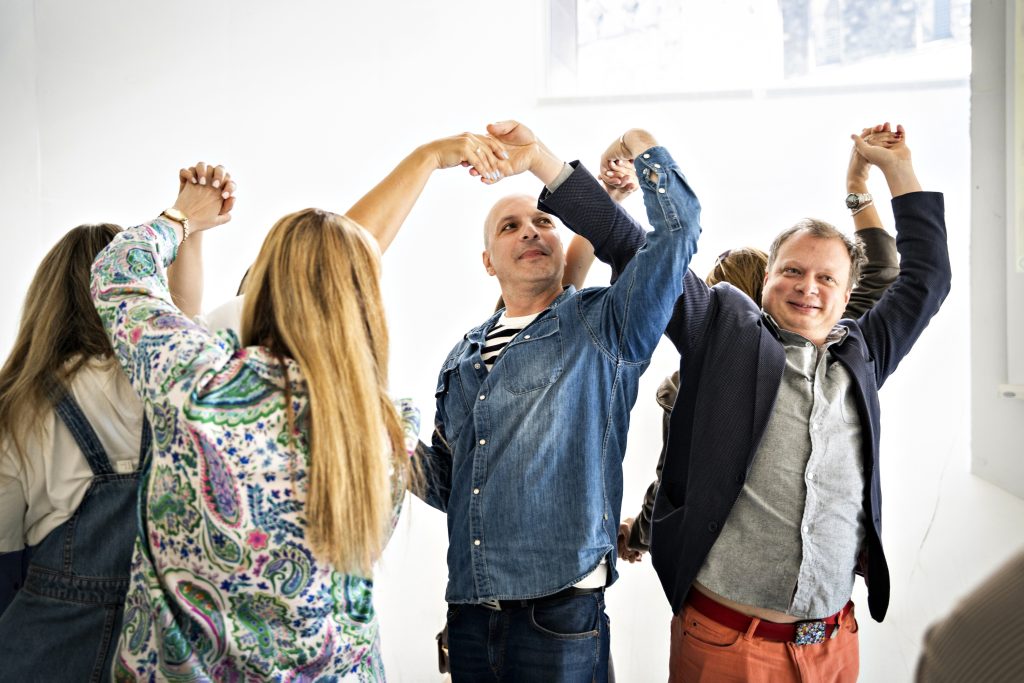
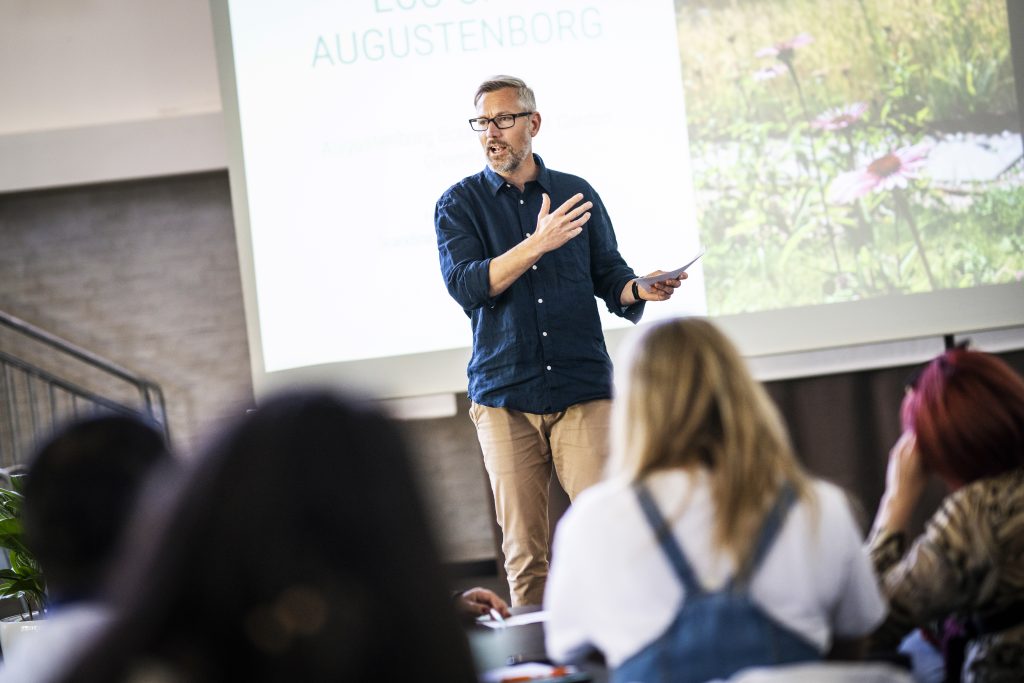
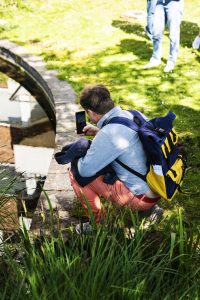
In the middle of the week, a whole day in Malmö was planned. A guest lecture was held by Mathilda Rosengren, Postdoc at the Institute for Urban Research, Malmö University about urban trees. Lunch was taken on the beautiful roof of the Niagara Building.
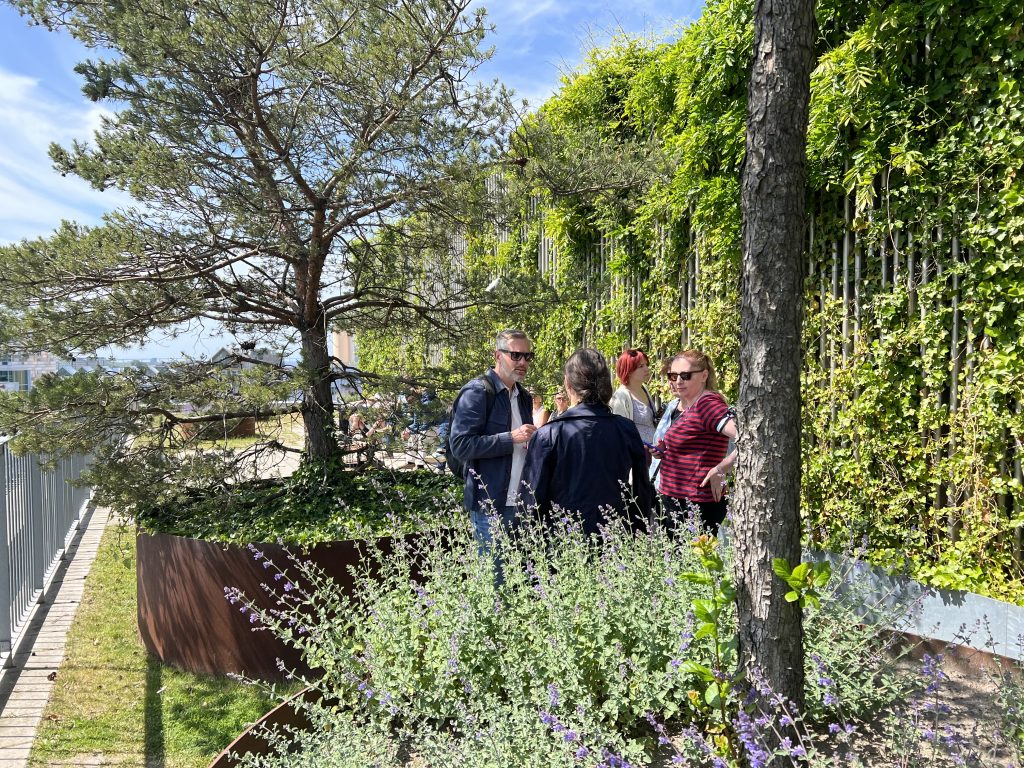
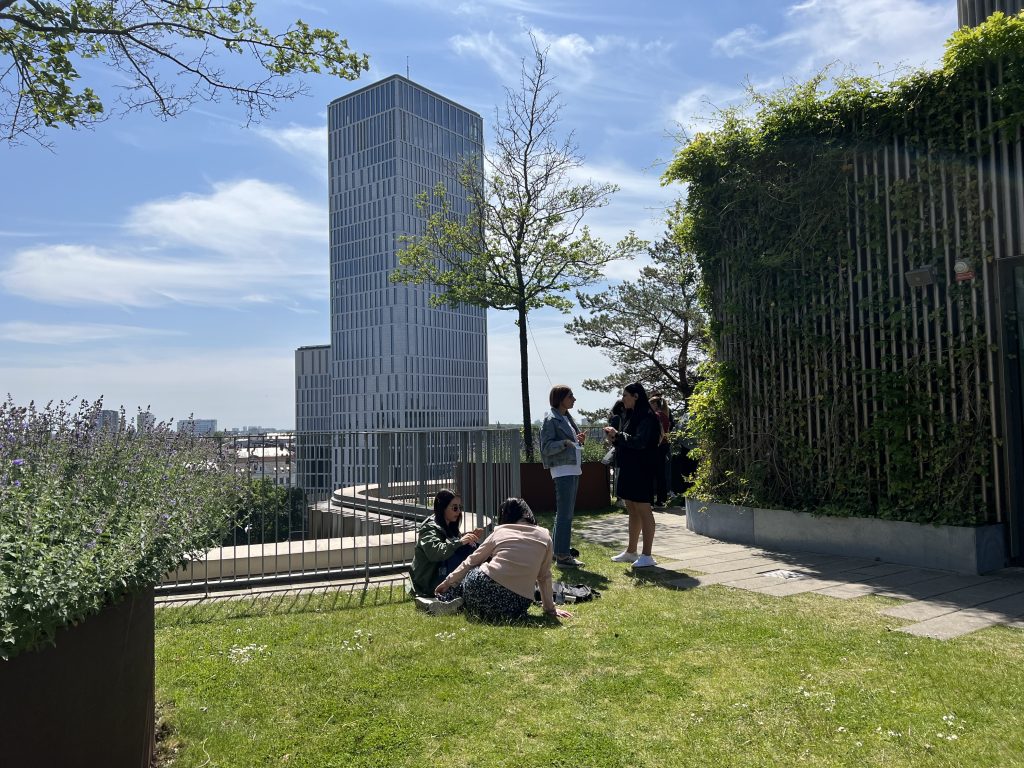
In the afternoon, the whole group of current participants headed towards the Western Harbour in Malmö where they got a guided tour by the teachers in the programme. Focus was on nature-based solutions in the city planning.
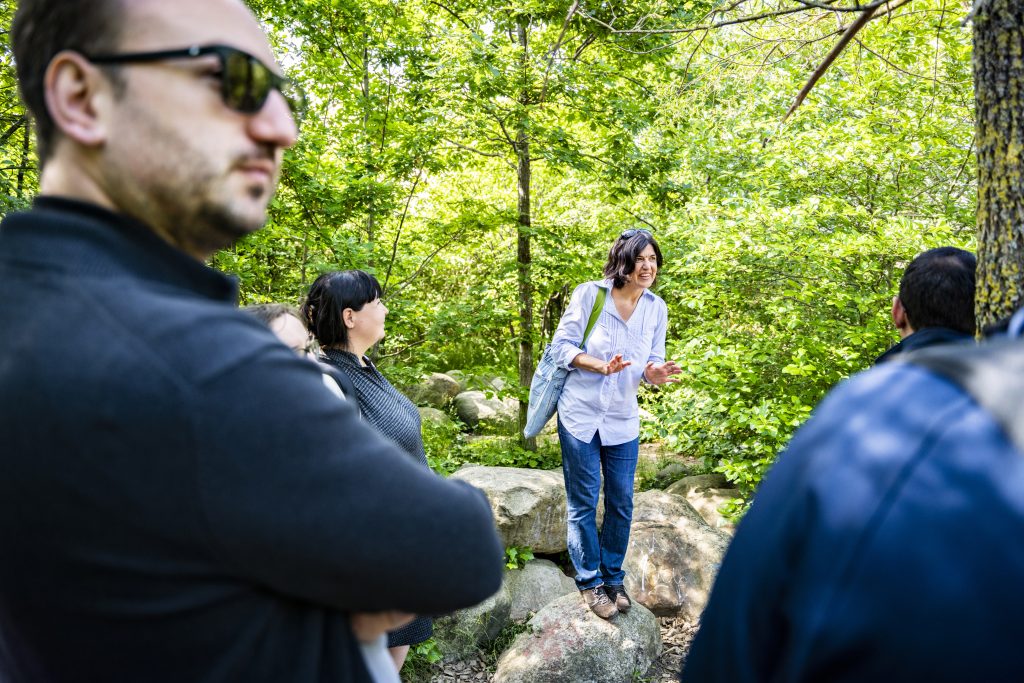
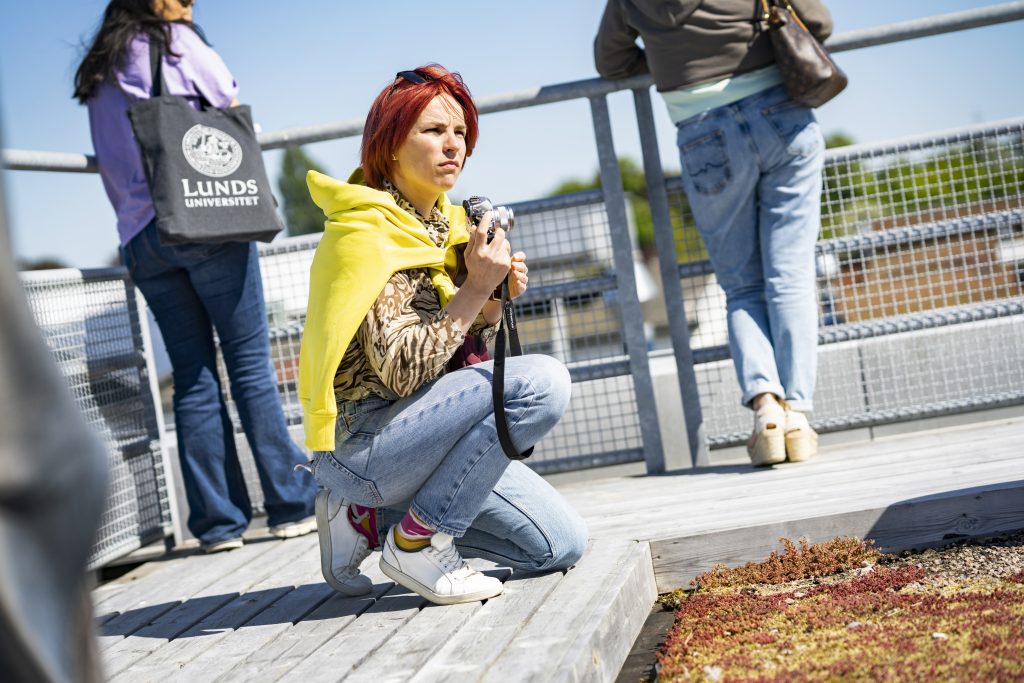
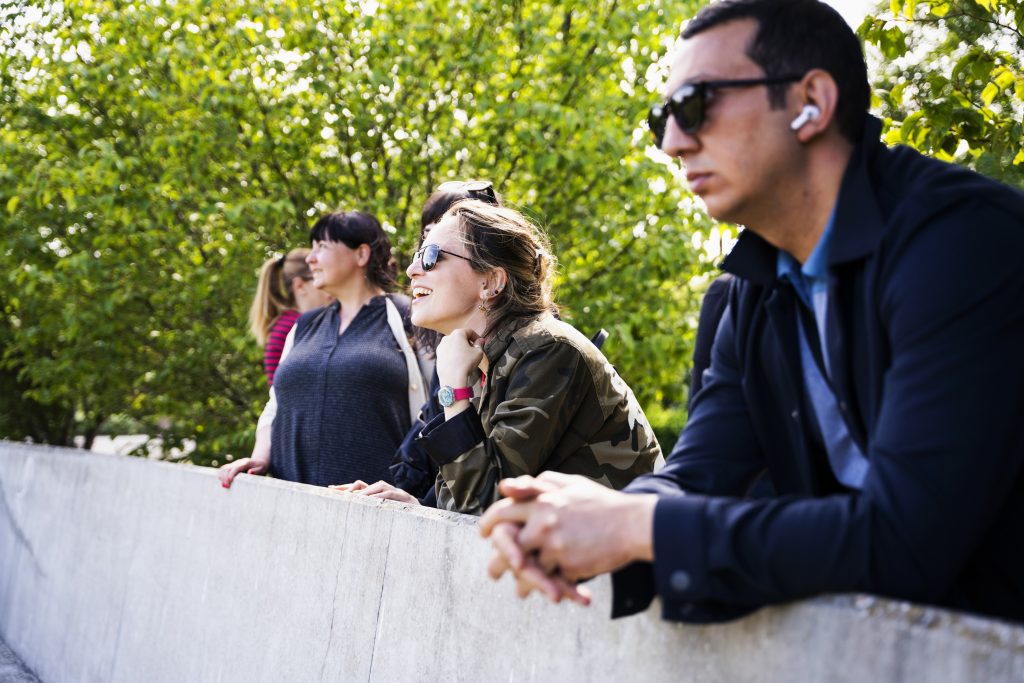
On the Thursday, a guest lecture was held about the Brunnshög Project in Lund. Lecturer was Eva Dalman, project leader at Lund municipality. The participants also got a guided tour at Brunnshög with Ib Rosvall, community planner at Lund municipality and Mats Persson, cathedral treasurer at the Swedish church. A workshop where the participants could reflect on the learning of the study visits was held in the afternoon.
The last day was the big day of the change project presentations for the participants! What an impressive work they have done!
“It’s fascinating and powerful to listen to you all. We’ve been waiting for Sweden Week for months. It’s definitely the highlight of this course. You’ve made a quick jump on that learning curve! We look forward to following your continued work! Because you will continue now”, said Björn Wickenberg, lecturer in the programme.
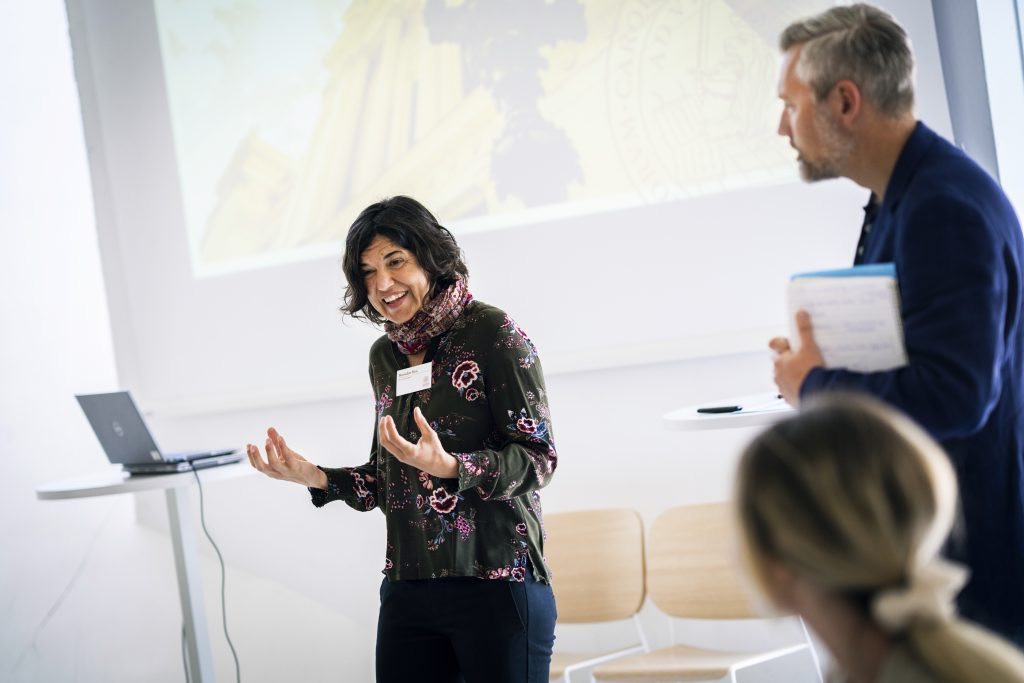
During the wrapping up of the week and discussion on the way forward, a lot of positive comments were made by the participants.
“I’ve discovered many new tools within nature-based solutions. Now I want to develop my city!”
“I will be putting a green stamp on all our projects at home from now on. That’s my plan.”
“The first thing I will do at home is tell everyone how amazing Lund is. How clean a city can be thanks to cyclists instead of motorists. People of all ages cycle here!”
“I will share my newly acquired knowledge with colleagues from other ministries.”
“I will go beyond doing business as usual. I want to inspire others to implement projects like these. I will arrange workshops for stakeholders back home and tell them about all achievements done in Sweden and about how laws and regulations need to change.”
“I took a lot of photos during my stay here and I will show them to my boss. I’ve got many ideas! Let’s do it!”
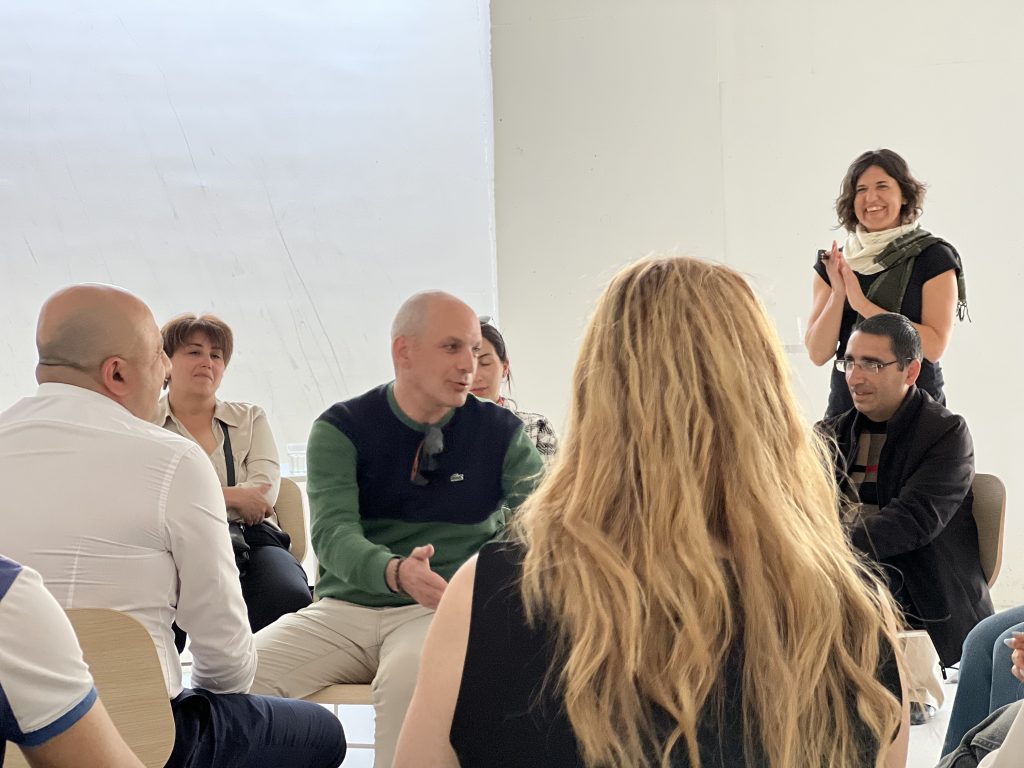
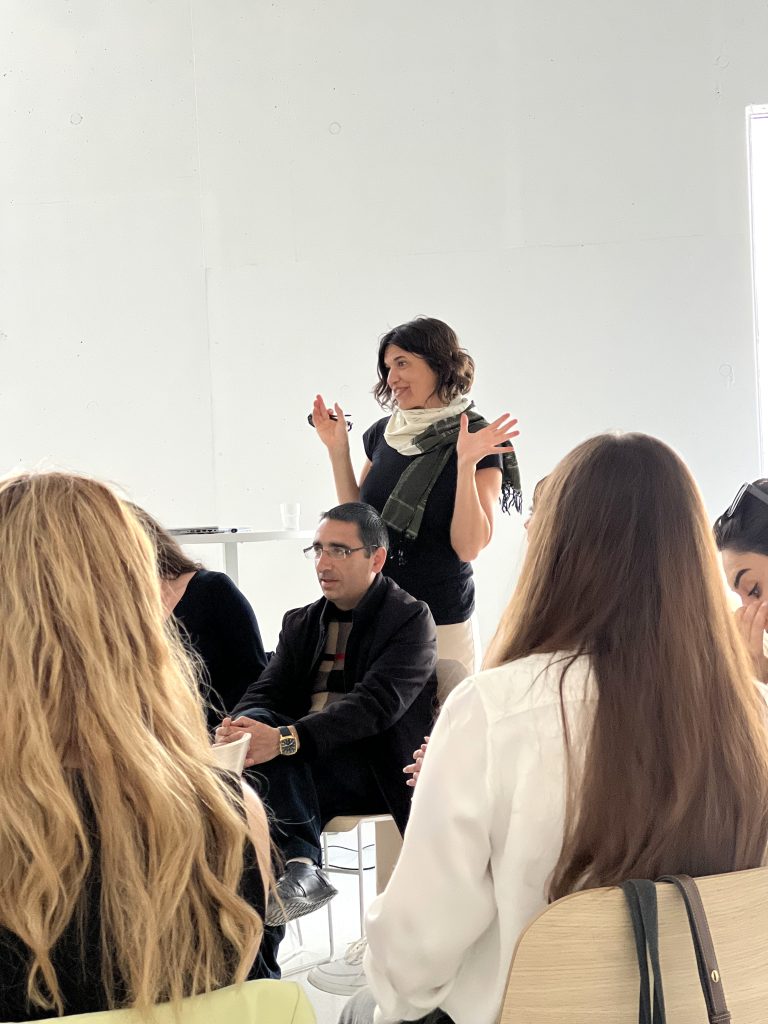
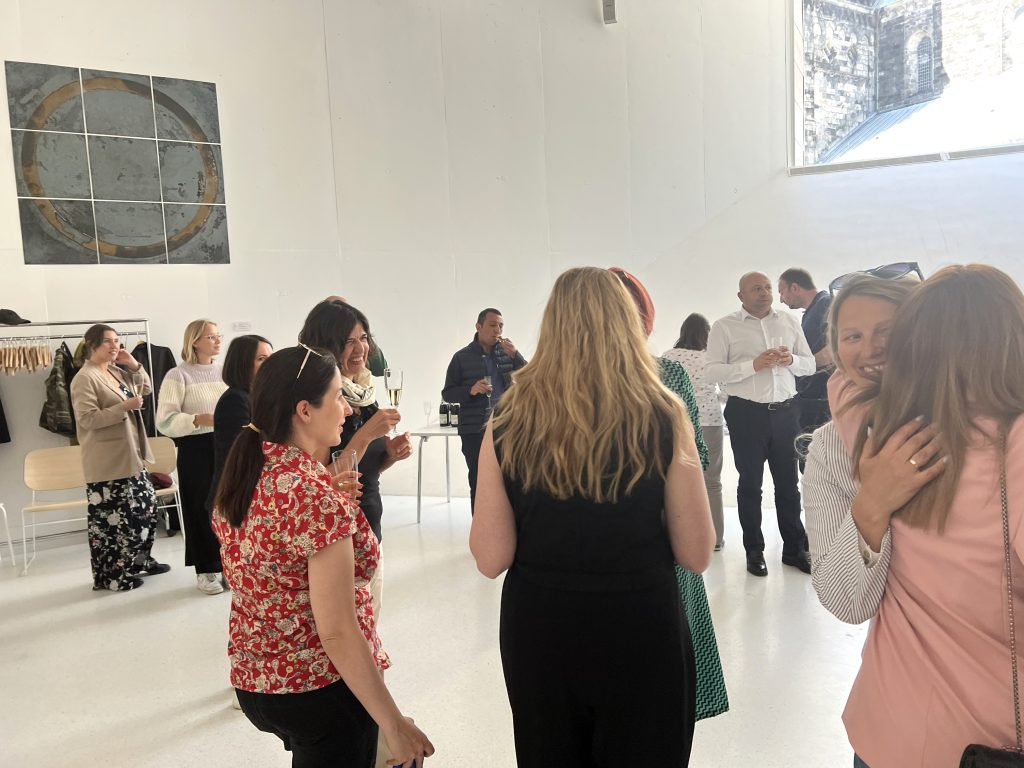
Facts
Lund University’s programme Innovation in Governance for Urban Nature-based Solutions focuses on governance and leadership innovation in the area of Nature-based Solutions for improved urban environments. It is provided by the International Institute for Industrial Environmental Economics (IIIEE) in collaboration with LUCE, the Department for Commissioned Education and funded by the Swedish Institute. Target countries are Armenia, Azerbaijan, Georgia, Moldova and Ukraine.

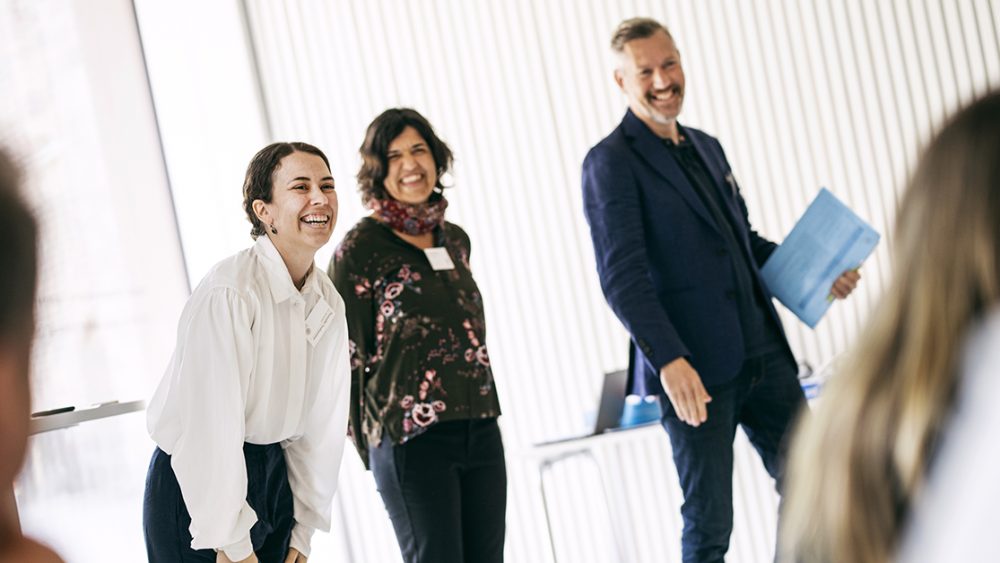
Donaldfaura
equilibrado de turbinas
Dispositivos de calibración: importante para el operación estable y efectivo de las equipos.
En el mundo de la tecnología moderna, donde la productividad y la fiabilidad del dispositivo son de alta importancia, los aparatos de equilibrado juegan un tarea vital. Estos sistemas adaptados están concebidos para calibrar y fijar partes dinámicas, ya sea en equipamiento industrial, medios de transporte de movilidad o incluso en dispositivos caseros.
Para los especialistas en conservación de sistemas y los profesionales, utilizar con equipos de calibración es importante para promover el operación suave y seguro de cualquier aparato giratorio. Gracias a estas alternativas modernas modernas, es posible disminuir significativamente las vibraciones, el ruido y la presión sobre los soportes, extendiendo la duración de elementos costosos.
De igual manera trascendental es el papel que cumplen los aparatos de ajuste en la servicio al comprador. El apoyo especializado y el conservación continuo empleando estos aparatos permiten brindar soluciones de gran estándar, elevando la bienestar de los usuarios.
Para los titulares de proyectos, la contribución en equipos de balanceo y sensores puede ser fundamental para aumentar la productividad y rendimiento de sus sistemas. Esto es especialmente trascendental para los emprendedores que manejan medianas y intermedias emprendimientos, donde cada aspecto vale.
Por otro lado, los equipos de ajuste tienen una vasta aplicación en el campo de la protección y el control de calidad. Permiten identificar eventuales defectos, impidiendo arreglos costosas y perjuicios a los dispositivos. Incluso, los datos generados de estos equipos pueden usarse para perfeccionar procedimientos y incrementar la presencia en sistemas de exploración.
Las áreas de aplicación de los aparatos de balanceo comprenden numerosas sectores, desde la elaboración de ciclos hasta el control ambiental. No afecta si se considera de importantes manufacturas productivas o pequeños locales hogareños, los dispositivos de ajuste son fundamentales para proteger un desempeño óptimo y sin riesgo de fallos.
Donaldfaura
equilibrado de rotores
Sistemas de ajuste: clave para el desempeño uniforme y óptimo de las equipos.
En el campo de la innovación moderna, donde la rendimiento y la estabilidad del aparato son de alta trascendencia, los sistemas de calibración tienen un papel fundamental. Estos aparatos adaptados están creados para balancear y estabilizar elementos dinámicas, ya sea en maquinaria productiva, medios de transporte de transporte o incluso en equipos domésticos.
Para los profesionales en soporte de sistemas y los técnicos, trabajar con aparatos de ajuste es crucial para asegurar el desempeño estable y estable de cualquier dispositivo giratorio. Gracias a estas alternativas tecnológicas avanzadas, es posible disminuir considerablemente las vibraciones, el zumbido y la tensión sobre los cojinetes, mejorando la tiempo de servicio de componentes costosos.
Igualmente relevante es el papel que cumplen los dispositivos de calibración en la atención al usuario. El asistencia profesional y el mantenimiento permanente empleando estos aparatos posibilitan brindar prestaciones de alta calidad, elevando la agrado de los consumidores.
Para los dueños de proyectos, la financiamiento en sistemas de ajuste y dispositivos puede ser esencial para optimizar la efectividad y rendimiento de sus equipos. Esto es particularmente trascendental para los emprendedores que dirigen modestas y modestas empresas, donde cada aspecto cuenta.
También, los dispositivos de equilibrado tienen una extensa uso en el campo de la prevención y el monitoreo de nivel. Habilitan localizar posibles defectos, evitando intervenciones caras y daños a los equipos. Más aún, los resultados recopilados de estos sistemas pueden utilizarse para optimizar procesos y incrementar la reconocimiento en sistemas de búsqueda.
Las zonas de aplicación de los dispositivos de calibración cubren múltiples ramas, desde la manufactura de transporte personal hasta el control ecológico. No afecta si se habla de grandes manufacturas productivas o limitados establecimientos hogareños, los dispositivos de balanceo son necesarios para garantizar un funcionamiento eficiente y sin riesgo de interrupciones.